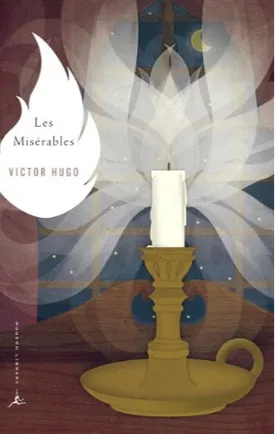Victor Hugo
Victor Hugo is among the most prolific and multi-faceted authors of all time. Renowned for works like Les Misérables and The Hunchback of Notre-Dame, Hugo was a celebrated poet, novelist, playwright, and essayist whose writings profoundly influence and enrich our present day society. Born in Besançon, France in 1802, Hugo grew up under the strict and narrow moral codes of the Catholic Church. But despite the religious backgrounds that he was born into, Hugo was far more interested in revolutionary ideals and social issues than the conventions of his time. This dissent from the status quo combined with his unique talent for storytelling, led to works that are now considered greats of French literature, sparking the Romantic literary movement of the 19th century.
Victor Hugo wrote on a wide variety of topics, often reflecting his progressive social beliefs. He wrote about oppressive conditions faced by the working class, the immorality of capital punishment, the rights of animals, even the single life of unmarried women. He was known for his exploration of the dark and often cruel aspects of life, and how, in spite of the suffering, love and life still finds ways to shine, however deep the shadows may loom. He was a passionate advocate for the rights of all and not just the privileged few, writing with a level of complexity and depth that expressed both the struggles and beauty of life.
Hugo’s most well known works of course, fall into the realm of fiction. His masterpiece, Les Misérables is perhaps his most renowned work and continues to have a lasting impact to this day, having been the subject of plays, movies and television shows. The novel follows the story of Jean Valjean and his moral transformation during a period of extreme poverty and inequality in France. It is a reflection of Hugo's own views as he weighed justice and mercy, as well as faith and reason. Les Misérables is a testament to Hugo's ability to capture the nuances of human behavior in a masterful and unique way.
The Hunchback of Notre-Dame is another classic undoubtedly due in large part to Hugo's masterful writing. Set in 15th-century Paris, the novel delves into themes of loyalty, religion, passion and social injustice. Hugo’s power of description brings characters and scenery to life, making for a vivid and unforgettable reading experience.
Victor Hugo’s influence does not end with his works of fiction, as he is also celebrated for his poetic works, such as Les Châtiments and Les Contemplations. He wrote on a wide range of topics, expressing his beliefs on politics and religion, while exploring questions of faith, doubt and mortality. His poems have often been called the pinnacle of romantic poetry, captivating readers with vivid and emotive prose, reflecting his unique gift for language and deep exploration of human emotions.
It is clear that Victor Hugo’s works continue to resonate with readers to this day, influencing popular culture and society in profound and powerful ways. His writings provide us with a lasting impression of his views and values, which still remain relevant and important to the world today. His stories, poems, and plays are timeless, endearing works that demonstrate the power of literature to captivate, communicate complex ideas and emotions, and stand the test of time.

